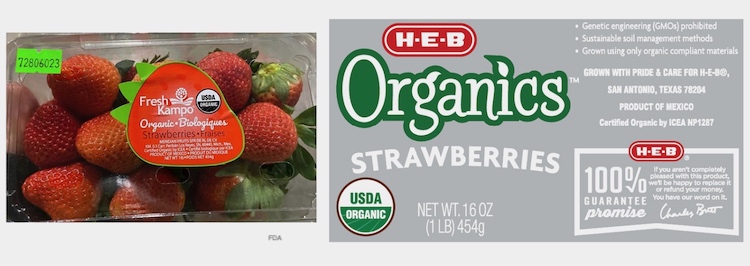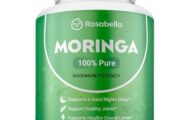One more probable hepatitis A strawberries case has been added to the investigation into the outbreak linked to that fruit, according to the FDA. That person has been hospitalized. We do not know where that person lives, or the age range of any of the patients. We do know that the last illness onset date was May 6, 2022.

And the recall of Urban Remedy Tea that was reported on June 10, 2022 is now considered a market withdrawal, since that product was not made with the recalled strawberries.
The strawberries were imported from Baja, California and branded as FreshKampo and HEB by a common supplier. The berries that caused these illnesses were purchased between March 5, 2022 and April 15, 2022. They are obviously past their shelf life, but some consumers may have processed and frozen the berries, so they remain a risk. Freezing does not destroy the hepatitis A virus.
The case count by state is California (16), Minnesota (1), North Dakota (1), and one probable. Thirteen people have been hospitalized, including the one probable hepatitis A strawberries case.
If you bought these strawberries, make sure you haven’t frozen them for later use. If you ate the strawberries when they were fresh, monitor your health for the symptoms of hepatitis A, which can take up to 50 days to appear, even though most people get sick within two weeks.
If you ate the strawberries within the last two weeks, you can get a hepatitis A vaccine that will protect you. That vaccine is only effective if given within 14 days of exposure. Talk to your doctor about this.
Symptoms of hepatitis A include jaundice (yellowing of the skin and eyes), lack of appetite, upset stomach, stomach and abdominal pain, vomiting, fever, diarrhea, joint pain, dark colored urine, light clay-colored stools, and lethargy and tiredness. If you have eaten strawberries and have been ill with these symptoms, see your doctor. You may be part of this outbreak.

If you have been sickened with a hepatitis A infection, please contact our experienced attorneys at 1-888-377-8900 or text us at 612-261-0856. Our firm represents clients in lawsuits against grocery stores and food processors.



